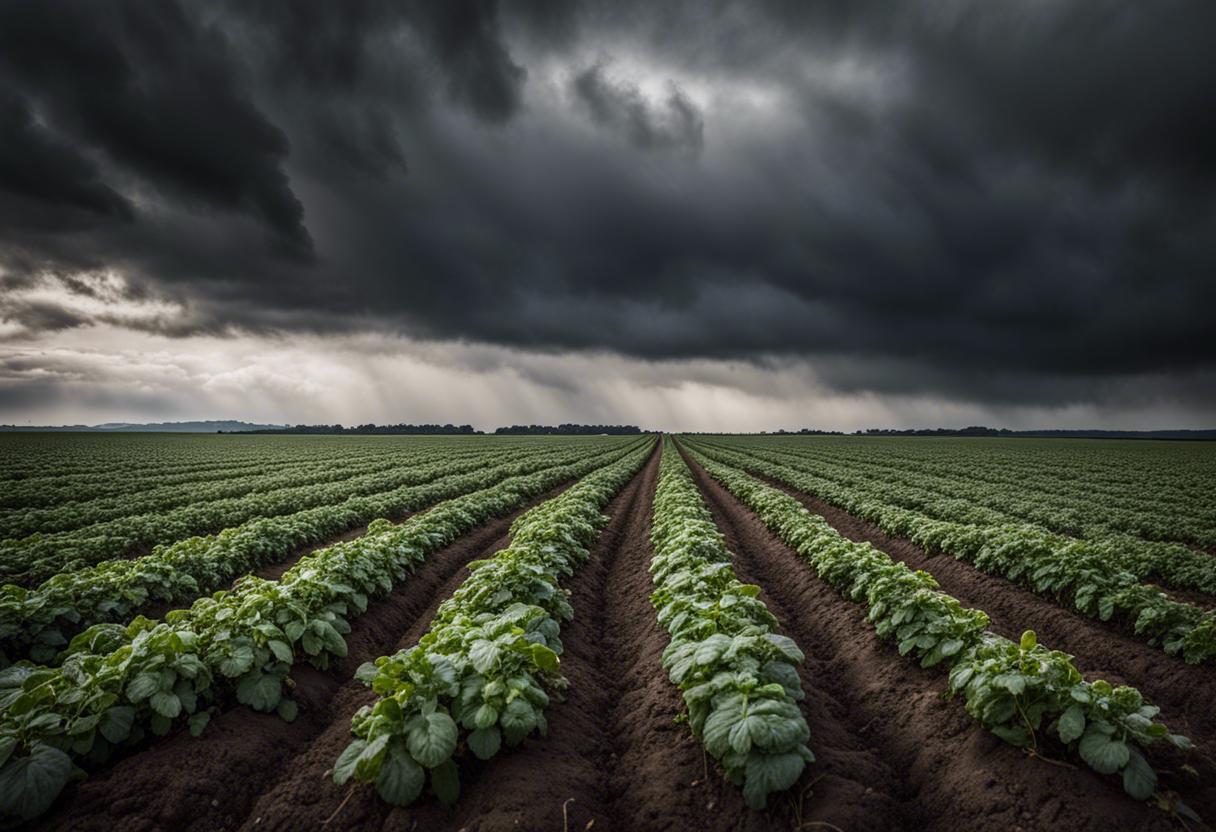Due to the ongoing periods of heavy rain this spring, a severe potato scarcity is predicted for the upcoming fall. Usually, potatoes are planted during February and March, but very few from the 21,000-acre crop have been seeded thus far owing to the incessant rainfall. The situation is being exacerbated by the persistent rain, with no signs of improvement in sight.
The national meteorological department, Met Éireann, forecasts that the following week will see rainfall two to five times the average all over the country, with the heaviest rain expected in the West and Southwest. The condition of the soil is projected to worsen, with even well-drained soils on the verge of reaching saturation point due to the overwhelming excess of water.
This ongoing crisis adds to the problems carried over from a disappointing harvest last year, a result of a rain-drenched fall that hampered machinery operation in potato drills. The inclement weather has delayed the planting of this year’s crop across Northern Europe as well.
Sean Ryan, the national chairman of the Irish Farmers Association (IFA) for potatoes, stated that usually 60-70% of the crop would have been planted by this time. He predicts a shortage of potatoes beginning early summer, usually when the first crop would have been harvested, even in the most favourable circumstances of seed planting within the next 10 days given ideal conditions.
The prolonged wet season, the worst Ryan has ever witnessed, is a significant cause for concern. He expressed his worries about the potential scarcity of potatoes during August and September, a period when new potatoes typically land on supermarket shelves, foreseeing potential gaps in supply.
To help navigate this crisis, Charlie McConalogue, the Minister for Agriculture, Food and the Marine, has asked his department to halt non-essential farm inspections until the 22nd of April, and instructed Teagasc to develop a system to help farmers best utilise their fodder supplies and, if necessary, facilitate interaction between those with excess and those in need.
The National Fodder and Feed Security Committee’s recent gathering concluded the country has ample fodder, the distribution just requires improvement. Mr. McConalogue appealed to the banking sector to be considerate of farmers grappling with financial strain due to inclement weather.
State Minister with the Department of Agriculture, Martin Hayden, appearing on RTÉ’s ‘Morning Ireland’, assured that all options are being considered in helping farmers navigate this challenging period. Recognising the immense strain they are under, Mr. Hayden expressed how things are constantly being reviewed in collaboration with farmers, agricultural organisations, the industry, feed traders and co-operatives, with Teagasc playing a crucial advisory role.
Furthermore, the State Minister noted the farmers’ predicament of a “double impact”, referring to the tough period before Christmas when winter crop sowing was needed, in addition to disease control challenges during later sowing. This past winter had been unusually harsh, with not a single respite from September to April, which has drastically affected our farmers.
They’ve had to shift significantly from their farming methods of five or ten years ago, and continue to evolve. Given the severe pressing problem at present, it is rightful for the Government to provide support. Related articles also shed light on the state of despair farmers are facing given the constant rain, declaring it to be the worst they’ve ever experienced. There are discussions around understanding the factors behind Ireland’s recent weather patterns.

